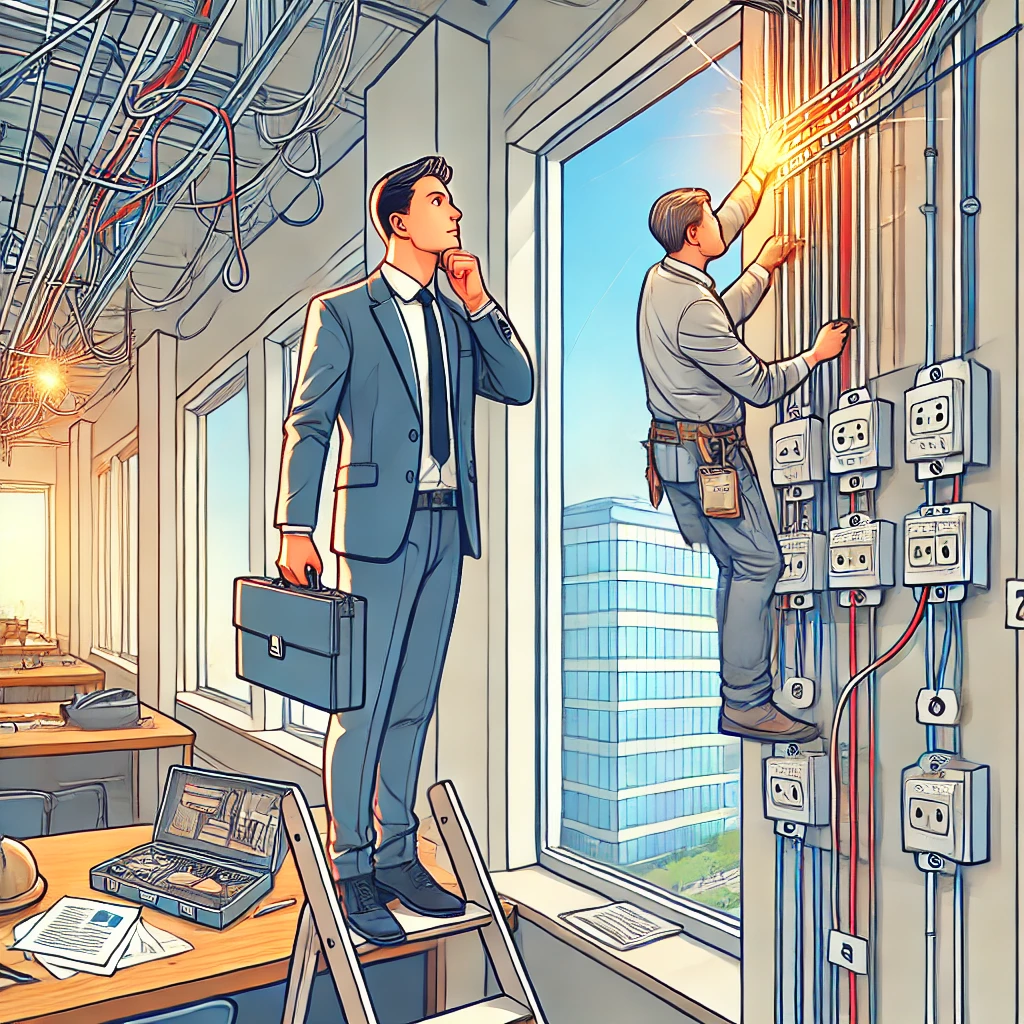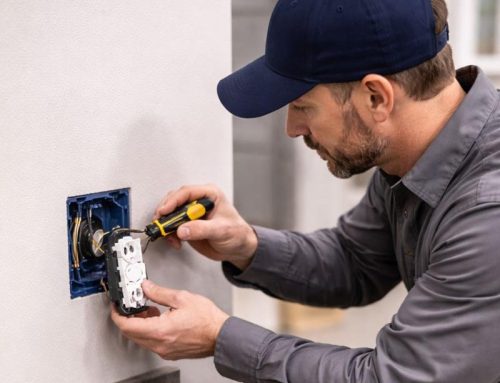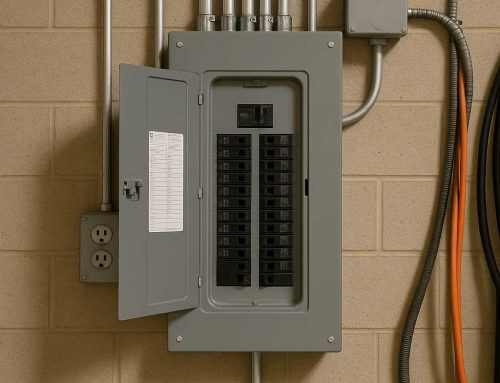DIY projects can be a great way to save money and take control of your business’s maintenance, but when it comes to electrical work, cutting corners can lead to serious safety hazards, costly mistakes, and even legal trouble. Before tackling an electrical project yourself, here are some key things to watch out for.
1. Understanding Electrical Codes and Permits
Commercial properties must adhere to strict electrical codes that ensure safety and compliance with local regulations. Before attempting any electrical work, research whether you need a permit and if your work will meet National Electrical Code (NEC) standards. Failure to comply could result in fines, business shutdowns, or dangerous conditions.
2. Risk of Electrical Shock and Fire
Electricity is dangerous, and improper handling can lead to severe shocks, burns, or even fatalities. Faulty wiring can also be a major fire hazard. If you’re unsure about safely turning off power, grounding wires, or using the correct circuit breakers, it’s best to consult a professional.
3. Overloading Circuits
One of the most common mistakes DIYers make is overloading circuits. Too many devices drawing power from a single circuit can cause overheating and increase the risk of electrical fires. Before installing new wiring or outlets, calculate the electrical load and make sure your system can handle it.
4. Using the Wrong Tools and Materials
Electrical work requires specialized tools and materials that are rated for commercial use. Using the wrong wire gauge, improper connectors, or low-quality materials can lead to loose connections, overheating, and potential hazards down the road.
5. Improper Wire Connections
Secure and correct wire connections are crucial for safe operation. Loose or improper wiring can lead to short circuits, sparks, and even complete system failures. Be sure to use wire nuts, properly secure connections, and follow wiring diagrams carefully.
6. Underestimating the Complexity of the Job
Commercial electrical systems are far more complex than residential setups. Business properties often require three-phase power, specialized circuit breakers, and industrial-grade wiring. If you’re unfamiliar with these components, a small mistake can have large and expensive consequences.
7. Liability Issues
If faulty electrical work causes damage to your business, insurance claims may be denied if the work wasn’t performed by a licensed professional. Additionally, if an employee or customer is harmed due to an electrical failure, you could be held legally responsible.
When to Call a Professional
While small tasks like replacing light fixtures or outlets might be manageable for a knowledgeable DIYer, any major electrical work should be left to licensed electricians. Professionals ensure the job is done safely, up to code, and without the risk of costly mistakes or liability issues. Eric Gandler Clifton Park
Bottom Line
DIY electrical work might seem like a money-saving solution, but the risks far outweigh the benefits. If you’re not a trained electrician, it’s always safer to call in a professional. Protect your business, employees, and customers by ensuring your electrical system is in expert hands. Eric Gandler Clifton Park




